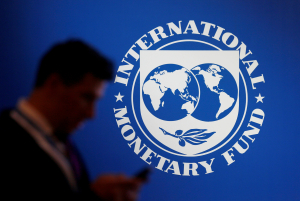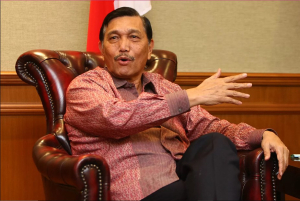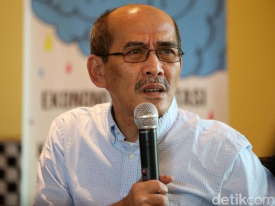Bali plans to impose tourist tax following recent violations
The Indonesian government has announced plans to impose a tax on foreign tourists and possibilities to disincentivize tourists from select countries. The plan comes as a response to recent violations committed by foreign tourists in Bali, Indonesia’s primary tourist destination.
According to a report by Katadata, since early 2023 through April 12, 2023, the government had deported 86 foreign nationals who violated regulations primarily for overstaying permits, committing crimes, or working illegally.
Out of the total deportees, 21 were Russians tourists, including IC (24 years), who was deported to Russia on April 4 for filming herself committing disrespectful action. The police also investigate a Russian criminal syndicate operating in Bali and other areas.
Bali also planned to ban tourists from renting motorbikes because they were violating traffic regulations, including driving without a helmet or a license.
The country’s Tourism and Creative Economy Minister, Sandiaga Uno, said last week that the possibility of such a tax is currently under review. “We aim to complete the study in the next few weeks to make a decision,” Sandiaga said on Monday (17/4).
He also said that the tax revenue would be used to fund conservation projects in Bali. The government sees tax collection as a way to target foreign tourists and generate regional income for the development and upkeep tourism areas.
The government aims to attract upper-middle-class tourists willing to spend a minimum of US$4,000, a considerable increase from the pre-pandemic average of US$1,200.
Facing a dilemma
The proposal to impose foreign tourist tax in Bali was first announced in 2019. The initial plan was to impose a tax of US$10 per person on foreign investors, with the revenue generated to be used to fund environmental conservation efforts in Bali.
However, the implementation of the tourist tax was delayed due to the Covid-19 pandemic, and the proposal was revisited in 2021. The new plan proposed a tourist tax of between US$10 and US$15 per person, with the revenue generated to be used for environmental conservation and to improve local infrastructure.
As of September 2021, the implementation of the tourist tax has been postponed and later resurfaced in early 2023 following the increase in violations committed by foreign tourists in Bali.
On early April 2023, the Coordinating Minister for Maritime and Investment affairs, Luhut Pandjaitan, called for a tourism tax, saying Bali is one of the world's cheapest tourist destinations and that this had “encouraged many low-income foreign visitors to come to Bali, leading to a rise in unruly behavior”. The island should shift away from mass tourism and focus on becoming a quality tourism destination, Luhut said.
The execution of the policy however, had resulted in a dilemma, gaining both support and opposition. Opposing comments come from tourism industry players, whose concerned that a tax would deter people from visiting, damaging the tourism sector as it is still trying to recover from the pandemic, and may label Indonesia as discriminatory.
On the other hand, the government is dismayed by the behavior of some foreign tourists who cause trouble. The tax will also provide benefits for Bali in the form of revenue generated by high visitor numbers.
As the Covid-19 pandemic subsided, foreign tourist arrivals to Bali have continued to rise, with a shift in the trend of tourists’ nationalities. Bali has become increasingly popular among Eastern Europeans, particularly Russians and Ukrainians.
According to the Bali Regional Office of the Law and Human Rights Ministry, as many as 694,021 foreign tourists visited Bali this year as of April 1. Out of the total number, 269,397 tourists were from Australia, 77,535 were from India, and 52,985 tourists were from Russia.
From April 1-April 12, there were 176,643 arrivals at Bali’s Ngurah Rai International Airport, averaging 14,720 people per day.
Under the consideration that tourists are needed to help the tourism industry to recover from the massive blow it suffered from the coronavirus pandemic, some parties view that it is better for the government to issue new laws protecting sacred sites, tightening enforcement and deporting offenders, instead of imposing foreign tourist tax.
Already have an account? Sign In
-
Start reading
Freemium
-
Monthly Subscription
30% OFF$26.03
$37.19/MonthCancel anytime
This offer is open to all new subscribers!
Subscribe now -
Yearly Subscription
33% OFF$228.13
$340.5/YearCancel anytime
This offer is open to all new subscribers!
Subscribe now






